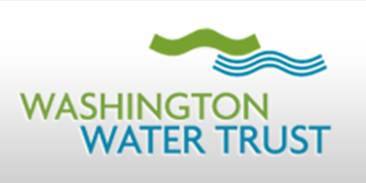
September to November 2024 Edition

Session 3: Swimmable
Summary by Brook Bauer – Graduate Student, Central Washington University
In Session 3 of the conference, titled "Swimmable: Protecting Washington’s Waters," the audience heard from Tom O’Keefe, Pacific Northwest Stewardship Director at American Whitewater, and Gretchen Greene, Principal Economist and Managing Partner of Greene Economics.
 Tom O’Keefe’s presentation, titled "Water Quality and Recreation," provided an overview of American Whitewater’s work on North America’s rivers, where they engage recreational users in the conservation and stewardship of natural and publicly accessible resources through remote fieldwork. O’Keefe’s and the organization's objective is to provide headwater protections under the Clean Water Act and educate the community. O’Keefe summarized successful projects ranging from hydropower operations, to restoring flow in the Duwamish river system, to channel maintenance on the Sultan River. His overview was inspiring, highlighting programming efforts aimed at fostering community-based management and maintenance of local river systems while closely adhering to federal environmental laws.
Tom O’Keefe’s presentation, titled "Water Quality and Recreation," provided an overview of American Whitewater’s work on North America’s rivers, where they engage recreational users in the conservation and stewardship of natural and publicly accessible resources through remote fieldwork. O’Keefe’s and the organization's objective is to provide headwater protections under the Clean Water Act and educate the community. O’Keefe summarized successful projects ranging from hydropower operations, to restoring flow in the Duwamish river system, to channel maintenance on the Sultan River. His overview was inspiring, highlighting programming efforts aimed at fostering community-based management and maintenance of local river systems while closely adhering to federal environmental laws.
 Gretchen Greene’s presentation, titled "Economic Evaluation of Harmful Water Quality Events in Southwest Florida," offered insights from a recent study conducted by her environmental economics consulting firm, which specializes in integrating economic principles with environmental stewardship. This presentation explored the impacts of water quality on the southwest Florida economy. She specifically emphasized coastal ecosystems as a vital lifeline for local economies, ranging from fisheries to tourism, which have experienced economic hardship due to increasing harmful water quality events like algal blooms. Greene’s firm aimed to quantify the economic impacts of poor water quality on Charlotte, Lee, and Collier counties, revealing potential losses exceeding $460 million in fishing, over 43,000 jobs, $5.2 billion in local economic output, and substantial declines in property values and recreational value. The analysis presented by Greene underscores the intersection between water quality, ecosystem health, and economic stability across the counties considered in this study, based on unique assets that affect vulnerability. Suggested by their analysis, investment in the water quality sector could yield significant economic benefits and enhance community resilience. Overall, Greene provided a thorough and engaging presentation that prevailed to show that complex interdisciplinary problems require interdisciplinary solutions.
Gretchen Greene’s presentation, titled "Economic Evaluation of Harmful Water Quality Events in Southwest Florida," offered insights from a recent study conducted by her environmental economics consulting firm, which specializes in integrating economic principles with environmental stewardship. This presentation explored the impacts of water quality on the southwest Florida economy. She specifically emphasized coastal ecosystems as a vital lifeline for local economies, ranging from fisheries to tourism, which have experienced economic hardship due to increasing harmful water quality events like algal blooms. Greene’s firm aimed to quantify the economic impacts of poor water quality on Charlotte, Lee, and Collier counties, revealing potential losses exceeding $460 million in fishing, over 43,000 jobs, $5.2 billion in local economic output, and substantial declines in property values and recreational value. The analysis presented by Greene underscores the intersection between water quality, ecosystem health, and economic stability across the counties considered in this study, based on unique assets that affect vulnerability. Suggested by their analysis, investment in the water quality sector could yield significant economic benefits and enhance community resilience. Overall, Greene provided a thorough and engaging presentation that prevailed to show that complex interdisciplinary problems require interdisciplinary solutions.

 Tom O’Keefe’s presentation, titled "Water Quality and Recreation," provided an overview of American Whitewater’s work on North America’s rivers, where they engage recreational users in the conservation and stewardship of natural and publicly accessible resources through remote fieldwork. O’Keefe’s and the organization's objective is to provide headwater protections under the Clean Water Act and educate the community. O’Keefe summarized successful projects ranging from hydropower operations, to restoring flow in the Duwamish river system, to channel maintenance on the Sultan River. His overview was inspiring, highlighting programming efforts aimed at fostering community-based management and maintenance of local river systems while closely adhering to federal environmental laws.
Tom O’Keefe’s presentation, titled "Water Quality and Recreation," provided an overview of American Whitewater’s work on North America’s rivers, where they engage recreational users in the conservation and stewardship of natural and publicly accessible resources through remote fieldwork. O’Keefe’s and the organization's objective is to provide headwater protections under the Clean Water Act and educate the community. O’Keefe summarized successful projects ranging from hydropower operations, to restoring flow in the Duwamish river system, to channel maintenance on the Sultan River. His overview was inspiring, highlighting programming efforts aimed at fostering community-based management and maintenance of local river systems while closely adhering to federal environmental laws. Gretchen Greene’s presentation, titled "Economic Evaluation of Harmful Water Quality Events in Southwest Florida," offered insights from a recent study conducted by her environmental economics consulting firm, which specializes in integrating economic principles with environmental stewardship. This presentation explored the impacts of water quality on the southwest Florida economy. She specifically emphasized coastal ecosystems as a vital lifeline for local economies, ranging from fisheries to tourism, which have experienced economic hardship due to increasing harmful water quality events like algal blooms. Greene’s firm aimed to quantify the economic impacts of poor water quality on Charlotte, Lee, and Collier counties, revealing potential losses exceeding $460 million in fishing, over 43,000 jobs, $5.2 billion in local economic output, and substantial declines in property values and recreational value. The analysis presented by Greene underscores the intersection between water quality, ecosystem health, and economic stability across the counties considered in this study, based on unique assets that affect vulnerability. Suggested by their analysis, investment in the water quality sector could yield significant economic benefits and enhance community resilience. Overall, Greene provided a thorough and engaging presentation that prevailed to show that complex interdisciplinary problems require interdisciplinary solutions.
Gretchen Greene’s presentation, titled "Economic Evaluation of Harmful Water Quality Events in Southwest Florida," offered insights from a recent study conducted by her environmental economics consulting firm, which specializes in integrating economic principles with environmental stewardship. This presentation explored the impacts of water quality on the southwest Florida economy. She specifically emphasized coastal ecosystems as a vital lifeline for local economies, ranging from fisheries to tourism, which have experienced economic hardship due to increasing harmful water quality events like algal blooms. Greene’s firm aimed to quantify the economic impacts of poor water quality on Charlotte, Lee, and Collier counties, revealing potential losses exceeding $460 million in fishing, over 43,000 jobs, $5.2 billion in local economic output, and substantial declines in property values and recreational value. The analysis presented by Greene underscores the intersection between water quality, ecosystem health, and economic stability across the counties considered in this study, based on unique assets that affect vulnerability. Suggested by their analysis, investment in the water quality sector could yield significant economic benefits and enhance community resilience. Overall, Greene provided a thorough and engaging presentation that prevailed to show that complex interdisciplinary problems require interdisciplinary solutions.

